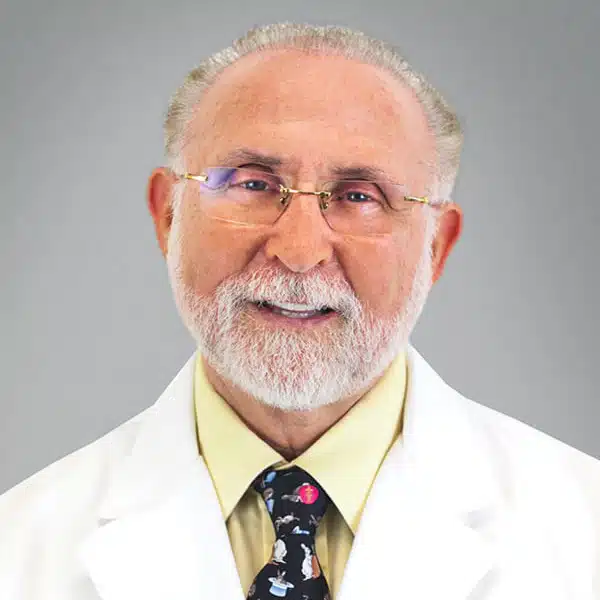Our health decisions can carry significant weight, and few subjects hold as much intrigue and complexity as testosterone therapy. As men age, their testosterone levels decrease, causing unwelcome changes in the body. Testosterone replacement therapy is a way to turn back the clock on aging and can hold the key to your well-being, but it comes with a veil of uncertainty.
A recent groundbreaking study has emerged, which sheds light on the matter and provides a source of hope and optimism. Our medical experts at the biostation invite you to explore these encouraging findings as we take you on a journey of knowledge, understanding, and empowerment with a spotlight on the conclusions of this new research.
What Is Testosterone Therapy?
Testosterone therapy is a medical approach to addressing low levels of testosterone. This condition is called hypogonadism or androgen deficiency. As men enter their 50s, a considerable number encounter declining testosterone levels. Testosterone plays a pivotal role in a range of body functions. It impacts thought processes, bone and muscle health, red blood cell creation, and sperm formation. It also governs sexual function in men. Aging, infections, trauma, and stress are a few causes for levels of this hormone to decline, which leads to emotional and physical changes and can cause lasting effects on your quality of life.
Testosterone therapy supplements the body with additional testosterone and aims to improve vitality and quality of life by addressing specific symptoms. You may benefit from testosterone therapy if you experience symptoms of testosterone deficiency, including decreased energy, breast growth, reduced muscle mass, slow beard growth, increased body fat, loss of body hair, mood changes, and diminished sex drive. It's essential to consult with expert medical professionals who offer customized treatment. At the biostation, our personalized approach ensures we make an accurate assessment of your health status and recommend the best type of testosterone to maximize your quality of life.
New Research on Testosterone Therapy
In a groundbreaking development, the most extensive study on testosterone hormone replacement therapy for men can offer reassurance to patients grappling with testosterone deficiency. This comprehensive study provides critical insight into the potential side effects of testosterone on heart health. The research shows that in men with low testosterone who already have heart problems or a high risk of heart disease, testosterone treatment is just as safe as a placebo with no active ingredient. It found that testosterone therapy does not amplify the risk of heart attacks, strokes, or cardiac-related fatalities.
These new findings stem from a robust clinical trial that employed the pinnacle standards of medical research. The study's outcomes lay to rest the prolonged uncertainty surrounding heart health and testosterone treatment for men suffering from inadequate testosterone production. Results reconcile decades of inconsistent conclusions regarding the heart-related implications of this type of therapy. Through rigorous medical investigation, this study of 5,246 men aged 45 to 80 delivers unprecedented clarity. The New England Journal of Medicine published the study's findings.
Untangling the Web of Safety Concerns
The most notable safety concerns linked to testosterone therapy are blood clotting, cardiovascular risk, and prostate cancer. These factors have been the central point of debates, with conflicting findings clouding our understanding. Past studies and controversies have created an uncertain and potentially negative narrative surrounding testosterone therapy. Some flagged issues about potential cardiovascular risks, while others linked testosterone therapy to blood clots, strokes, and prostate cancer. These opposing findings have left health care providers and patients navigating through a cloud of confusion.
Within the context of these concerns, findings in the new study, which was presented at an annual meeting of the Endocrine Society, stand as a beacon of optimism and clarity. The research directly addresses each worry, presenting findings backed by robust evidence and data.
The study's outcomes show no significant increase in cardiovascular risk, echoing the more positive prior findings. These results provide resolutions to concerns about prostate cancer and blood clotting, offering a comprehensive perspective for those seeking assurance about testosterone therapy. With the backing of empirical data, evidence, and expert opinions, people now have the tools to make informed decisions about their health journey.
Healthcare Experts Champion New Study
Experts and medical professionals have rallied to endorse the new research and findings. Supporting data and voices of authority transform the narrative from one of concern to one of clarity. " This has provided the closest thing we have to a definitive answer about cardiovascular risk and testosterone therapy," said Dr. Joshua Halpern, a urologist at Northwestern Medicine in Chicago.
The Remarkable Benefits of Testosterone Therapy
Testosterone therapy extends beyond its safety profile. It offers a lifeline to those struggling with the challenges of hypogonadism. Personalized treatment plans and expert monitoring by a caring team of health professionals provide remarkable health benefits. Optimal testosterone levels can reduce the risk of diabetes, improve bone health, and ensure a healthy heart.
Low testosterone symptoms are associated with feelings of tiredness and sadness. Addressing these low levels may improve anxiety and depression symptoms. Testosterone therapy offers the added benefits of increased libido, cognitive health, and weight control. Hormone replacement therapy doesn't deliver immediate results. Therefore, it's crucial to adhere to the recommended treatment plan provided by your expert medical practitioner, and you must be patient. The reward of gaining your youthful zest makes it all worthwhile.
Are You Ready To March Toward Renewed Vitality?
This recent study on testosterone therapy increases our medical understanding and clarifies earlier contradictions and doubts. It addresses common safety concerns and offers sought-after reassurance.
For those on the journey to tackling testosterone deficiency who are grappling with questions and uncertainties, our world-class medical team at the biostation invites you to lean on our expertise. Request a consultation with our dedicated patient advocates to find solutions to fatigue, brain fog, low libido, weight control, and depression. Your journey toward well-being begins with informed steps and a vision of renewed vitality.
 East Delray, Florida
East Delray, Florida West Delray, Florida
West Delray, Florida The Boca Raton, Florida
The Boca Raton, Florida Midtown Miami, Florida
Midtown Miami, Florida Carillon Wellness Resort
Carillon Wellness Resort  Williams Island
Williams Island  Midtown Tampa, Florida
Midtown Tampa, Florida Life Time
Life Time Grand Wailea
Grand Wailea  NOW OPEN
NOW OPEN  COMING SOON
COMING SOON 
